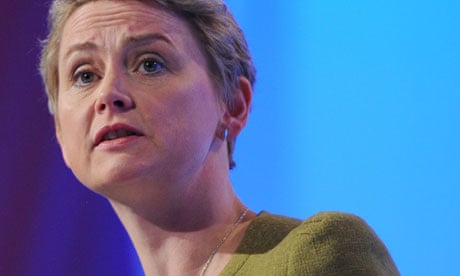One in 10 emergency calls to police are categorised as domestic violence related, rising in some areas to a fifth of all 999 alerts.
The figures, obtained following freedom of information requests, have prompted fresh demands for a long-term strategy to tackle Britain's "hidden crime."
Home Office data reveals that more than a million British women a year experience domestic violence, although experts believe the vast majority of incidents remain unreported.
However, domestic violence conviction rates in the five years to 2011 stood at just 6.5% of incidents reported to police.
Yvette Cooper, shadow home secretary, said: "Last year the domestic violence rate was twice as high as the burglary rate. Two women every week are killed at the hands of their abuser in England and Wales, yet it still isn't given enough priority to keep people safe."
Cooper is currently consulting on ways to better protect women, saying too much complacency surrounds the issue and she advocates the establishment of a domestic and sexual violence board to provide a long-term strategy to the problem.
The figures, obtained by the Labour party, reveal that Merseyside police had the highest proportion of domestic incidents in emergency calls received between April 2010 and April 2012, 43,995 out of 207,326 (21.2%). West Mercia police had the second highest with 18,041 of 99,188 emergency calls concerning domestic violence. Wiltshire had the lowest with 4,073 of 56,363 (7.2%).
Chief executive of the east London-based Nia project, Karen Ingala Smith, highlighted the government's contradictory position on the issue, saying that almost a third of funding for violence against women services from local authorities has been cut.
She said: "The government says it is committed to addressing violence against women, but with it's sustained attack on welfare benefits, women's representation and women's bodily autonomy, it is undermining any efforts to make women and girls safer."
